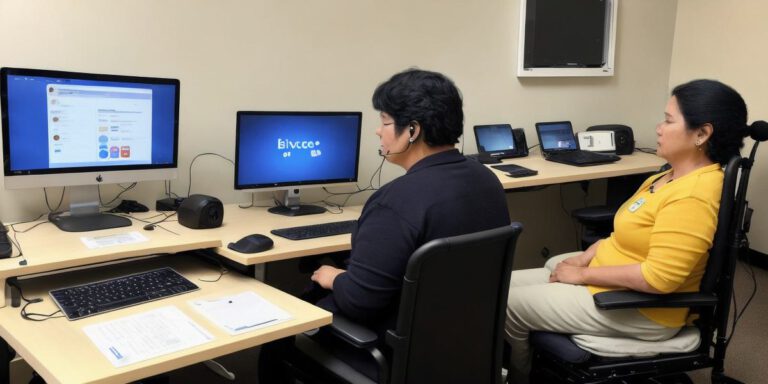Can I Clone My Voice with AI? A Comprehensive Guide for Developers

Introduction
The world is rapidly changing, and technology is at the forefront of this change. One area that has gained significant attention in recent years is voice cloning technology. With advancements in artificial intelligence (AI), it is now possible to clone a person’s voice using AI algorithms. In this article, we will explore how this technology works, its implications, and the potential use cases for developers.
How does Voice Cloning Technology Work?
Voice cloning technology involves analyzing a person’s voice data and then creating a digital replica of it. This process typically involves three steps: data collection, analysis, and synthesis.
- Data Collection: The first step is to collect a large amount of audio data from the person whose voice needs to be cloned. This data can include recordings of the person speaking in different accents, languages, tones, and inflections.
- Analysis: Once the data has been collected, it is analyzed using AI algorithms to identify patterns and characteristics in the audio signals. These patterns are then used to create a digital model of the person’s voice.
- Synthesis: Finally, the digital model is synthesized using text-to-speech (TTS) technology to produce a high-quality digital replica of the person’s voice.
Implications of Voice Cloning Technology
Voice cloning technology has significant implications for individuals and organizations alike. Here are some of the potential benefits and risks:
Benefits
- Enhanced Security: Voice cloning technology can be used to create secure passwords that are nearly impossible to guess or hack. These passwords are unique to each individual, making them highly effective in protecting sensitive information.
- Improved Accessibility: Voice cloning technology can be used to improve accessibility for individuals with disabilities by allowing them to interact with devices using their voice.
- Virtual Assistants: Voice cloning technology can be used to create virtual assistants that sound like real people, making them more engaging and effective at providing assistance.
Risks
- Privacy Concerns: The ability to clone a person’s voice raises significant privacy concerns, as it allows individuals to impersonate others and carry out fraudulent activities.
- Identity Theft: Voice cloning technology can be used to steal someone’s identity by tricking them into revealing sensitive information or making financial transactions under their name.
- Misrepresentation: Voice cloning technology can also be used to misrepresent individuals, leading to confusion and potential harm.
Potential Use Cases for Developers
Despite the risks associated with voice cloning technology, there are several potential use cases for developers. Here are a few examples:
- E-commerce: Voice cloning technology can be used in e-commerce to create personalized experiences for customers. For example, a customer could interact with a virtual assistant that sounds like a sales representative, providing them with personalized recommendations and assistance.
- Gaming: Voice cloning technology can also be used in gaming to create more engaging and immersive experiences. For example, a player could interact with a character that sounds exactly like their favorite actor, making the game feel even more realistic.
- Education: Voice cloning technology can be used in education to improve accessibility for students with disabilities. For example, a student could interact with a virtual assistant that sounds like a teacher, providing them with guidance and support.
Conclusion
Voice cloning technology is an exciting area of development with significant implications for individuals and organizations alike. While there are risks associated with this technology, there are also several potential use cases for developers. As this technology continues to evolve, it is important for developers to stay informed about its capabilities and potential applications.








